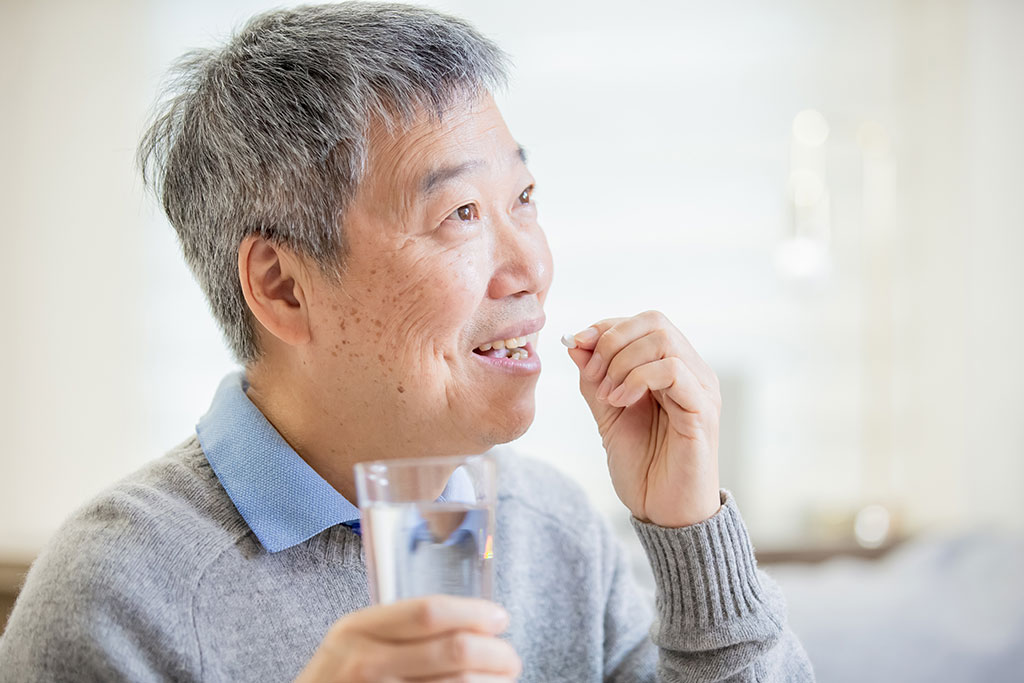
Prostate cancer cell usually requires androgen hormone, such as testosterone, to grow. Androgen deprivation therapy (ADT) is part of the standard protocol in the treatment of prostate cancer. It works by blocking the activity of male sex hormones such as testosterone, resulting in inhibition of cancer cell growth as well as division of the prostate cancer cells. Despite this treatment, cancer will become “castration-resistant”. Darolutamide is a non-steroidal anti-androgen that acts as an antagonist at the androgen receptor. It is indicated for non-metastatic castration-resistant prostate cancer. It is Therapeutic Goods Administration (TGA) approved (based on the Phase 3 ARAMIS Trial) but not Pharmaceutical Benefits Scheme (PBS) listed as yet. It can currently only be accessed by a compassionate supply program.
Darolutamide is available as 300mg oral tablets. The recommended daily dose is 600mg twice daily with food which is also the maximum daily dose. It is metabolised by CYP3A4. Therefore, CYP3A4 inhibitors such as itraconazole will increase the concentration of darolutamide (use with caution and monitor for drug toxicity) while drug inducers, such as rifampicin will decrease its concentration (avoid combination). Dose reduction is recommended if a patient has severe renal impairment or moderate hepatic impairment.
Most common side effects observed were fatigue, rash, pain in extremities, neutropenia, increased bilirubin levels as well as aspartate aminotransferase (AST). Central nervous system side effects were not significant given the drug’s low penetration of the blood-brain barrier. Nubeqa® is included in the Black Triangle Scheme to encourage reporting of the adverse events to help build up a full product safety profile.
References:
- Australian Prescriber. New drugs: darolutamide. Aust Prescr. 2020; 43(5): 173.
- Fizazi K, Shore N, Tammela TL, Ulys A, Vjaters E, Polyakov S, et al. Darolutamide in nonmetastatic, castration-resistant prostate cancer. N Engl J Med. 2019; 380: 1235-46.
- Nubeqa® (Darolutamide) Australian approved product information. Pymble: Bayer Australia. Approved February 2020.
- Therapeutic Goods Administration. Nubeqa. Woden: Therapeutic Goods Administration; 2020.
- U.S. National Library of Medicine. Efficacy and safety study of darolutamide (ODM-201) in men with high-risk nonmetastatic castration-resistant prostate cancer (ARAMIS). Bethesda: ClinicalTrials; 2020.
Subscribe Knowledge Centre Updates
Enter your details to receive Knowledge Centre updates
